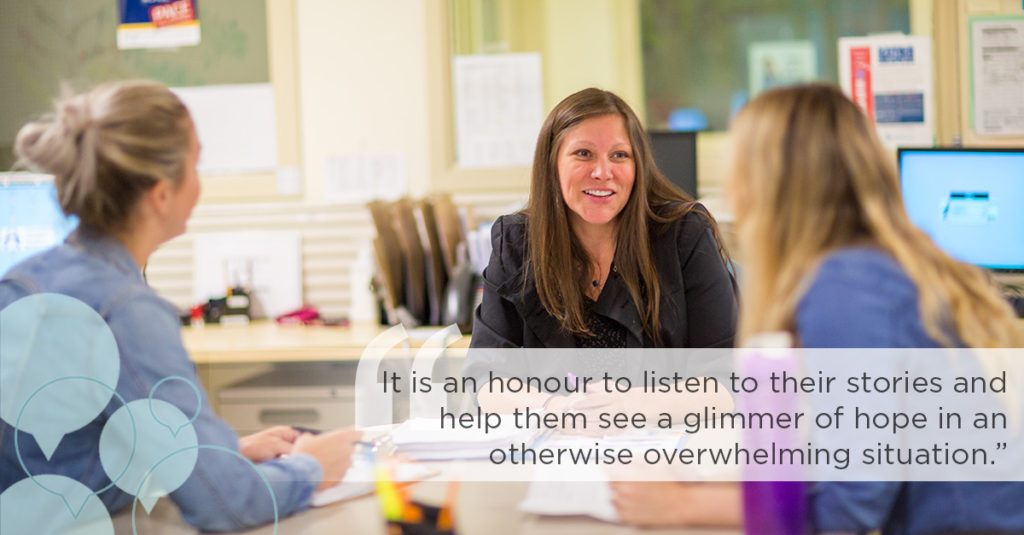
Introducing… a clinical psychologist
Dr. Jennifer McTaggart is a clinical psychologist in the Child and Youth Mental Health Program at McMaster Children’s Hospital. She recently became the Director of Training for the Clinical Child Psychology Residency Program and has been with HHS since 2007.
What do you love most about your role?
I love that I get to help children, youth and their families in a time of crisis. It is an honour to listen to their stories and help them see a glimmer of hope in an otherwise overwhelming situation. I get to do it all with a compassionate and dedicated team of professionals.
What do you find challenging?
It is often challenging to transition youth from hospital-based care to community-based services. I work with our community to build capacity, develop shared knowledge, and seamlessly transition youth from the hospital. It can be quite rewarding when we achieve those goals.
Describe a typical day
Every day looks different. At any one time, I might conduct a comprehensive risk assessment with a youth and their family in the Mental Health Assessment Unit in the emergency department, help someone on the inpatient unit identify a life worth living, participate in program development to provide evidence-based care, supervise a clinical child psychology resident in the psychological assessment of a child, or provide clinical training to staff within our program and the broader community. It’s a good combination of patient care, training our people, and research and development.
Camaraderie in this work is so important to support our own psychological well-being.
Tell us about your most gratifying experience at HHS
I feel lucky when a youth allows me to connect with their most intense and vulnerable experiences. Working with someone who is acutely suicidal, I find it gratifying to help them become more hopeful about their life and foster resiliency for their future. I also work with amazing people who care deeply about the people we serve, as well as each other. Camaraderie in this work is so important to support our own psychological well-being.
What’s one thing people would be surprised to learn about your role?
People may have preconceived notions about psychologists, like we constantly analyze you or we only care about your relationship with your mother. Psychologists have extensive training in normal development and abnormal development. This allows us to understand the complex connections between how people think, feel and behave given their stage of development and current life circumstances. It results in a comprehensive approach to care that incorporates all facets of an individual’s life.
